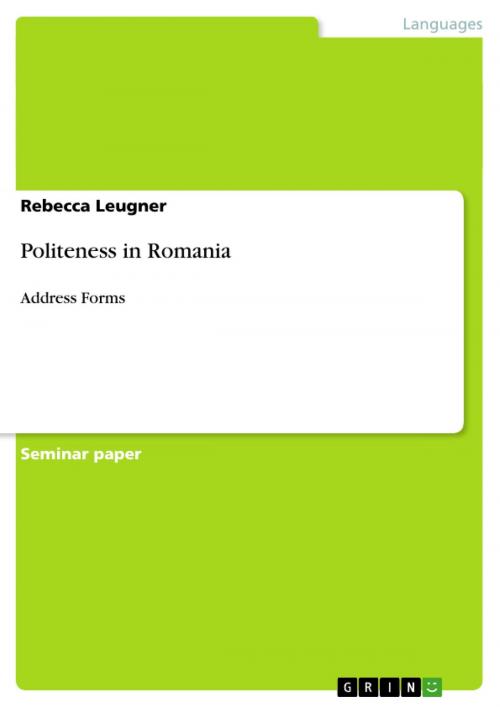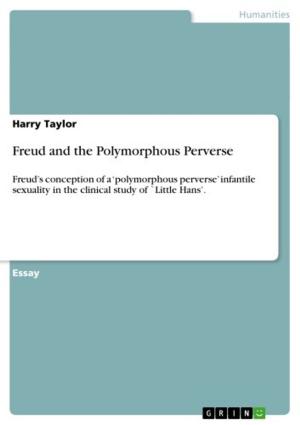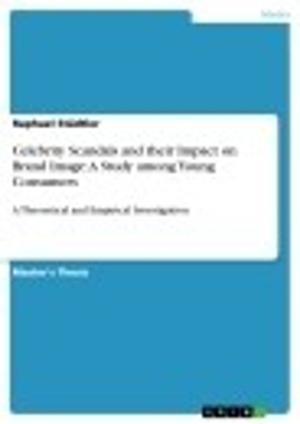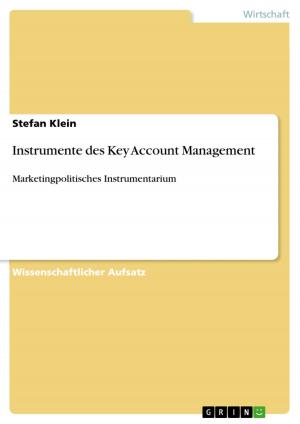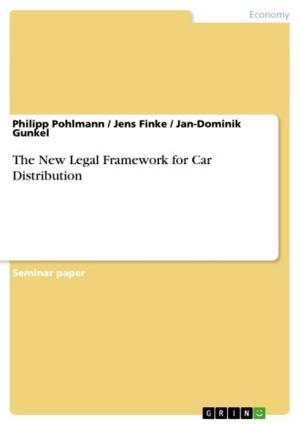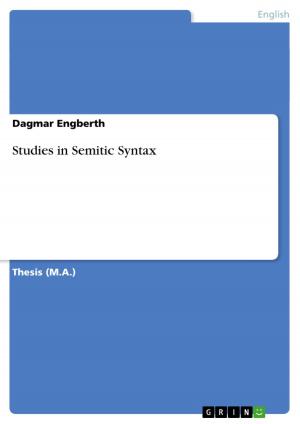Politeness in Romania
Address Forms
Nonfiction, Reference & Language, Foreign Languages, Slavic Languages| Author: | Rebecca Leugner | ISBN: | 9783640242245 |
| Publisher: | GRIN Publishing | Publication: | January 13, 2009 |
| Imprint: | GRIN Publishing | Language: | English |
| Author: | Rebecca Leugner |
| ISBN: | 9783640242245 |
| Publisher: | GRIN Publishing |
| Publication: | January 13, 2009 |
| Imprint: | GRIN Publishing |
| Language: | English |
Seminar paper from the year 2007 in the subject Romance Languages - Romanian Studies, grade: 2+, University of Frankfurt (Main) (Institut für England- und Amerikastudien), course: Politeness in Language, 28 entries in the bibliography, language: English, abstract: The Romanian language has a rich variety of forms of address. There are always multiple address forms to choose from, in familial as well as in formal contexts. These options lead to more specific expectations about dealing with power and solidarity and thus to a more sensitive handling of the act of addressing. In this term paper I will examine the use of address forms and especially the pronouns of address in the Romanian language. The main part of this paper consists of the evaluation of a questionnaire on the use of Romanian pronouns and its comparison to an equivalent questionnaire on German pronouns. In my analysis I want to investigate the hypothesis that Germans lean more towards the principle of 'solidarity', while for Romanians 'power' is the decisive factor for the choice of address forms. This thesis will be extended by saying that for Romanians not only 'power' but 'status' in general is a very important feature of communication.
Seminar paper from the year 2007 in the subject Romance Languages - Romanian Studies, grade: 2+, University of Frankfurt (Main) (Institut für England- und Amerikastudien), course: Politeness in Language, 28 entries in the bibliography, language: English, abstract: The Romanian language has a rich variety of forms of address. There are always multiple address forms to choose from, in familial as well as in formal contexts. These options lead to more specific expectations about dealing with power and solidarity and thus to a more sensitive handling of the act of addressing. In this term paper I will examine the use of address forms and especially the pronouns of address in the Romanian language. The main part of this paper consists of the evaluation of a questionnaire on the use of Romanian pronouns and its comparison to an equivalent questionnaire on German pronouns. In my analysis I want to investigate the hypothesis that Germans lean more towards the principle of 'solidarity', while for Romanians 'power' is the decisive factor for the choice of address forms. This thesis will be extended by saying that for Romanians not only 'power' but 'status' in general is a very important feature of communication.
